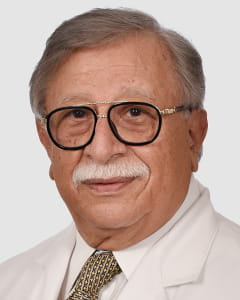You’re likely to be significantly thinner and healthier within a few months of having weight-loss surgery. But the changes in the way you eat could also lead to cavities and gum problems.
The good news: there are steps you can take to keep your teeth healthy. But first, let’s talk about potential dental issues after weight loss surgery.
Why Your Teeth May Suffer
Your oral health might deteriorate for several reasons after a bariatric procedure. You’ll consume more liquid calories before and after surgery, and later will likely eat several small meals a day instead of three large ones. All of that can affect the flora in your mouth.
- Your saliva’s composition will be different. The new version can erode teeth’s enamel, or at least not protect it as well from the acids that can mar them.
- You’ll chew less, especially during the liquid- and puree-diet phases of the bariatric surgery process. Chewing generates more saliva. Without it, the soft food might coat the teeth and form biofilm and harmful acid over the enamel, a Brazilian study found.
- You’ll take in less calcium and vitamin D, which both keep teeth strong. Dietary supplements, however, can help you maintain high levels.
- You might have acid reflux more than you used to, especially after a sleeve gastrectomy procedure. The acid can harm your teeth. Vomiting, common with dumping syndrome episodes, is also damaging.
Statistics bear this out. Two years after weight-loss surgery, patients’ teeth enamel lesions or cavities rose from 15.0 to 19.1, according to a Swedish study. Those who’d lost weight other ways during that time ended up with fewer lesions and cavities. A measure of deeper lesions was similar: 6.4 for bariatric patients versus 4.9 for others.
How Your Teeth Might Change
Look for symptoms of these issues whether you’ve always had straight white teeth and healthy pink gums, or a history of cavities and bleeding.
- Tooth decay. Cavities can result from the changed saliva.
- Gum disease. Your gums might bleed easily. They can also redden, swell up and feel tender. That’s true with gingivitis, which is a mild gum disease, and periodontitis, a more serious condition.
- Plaque. Extra plaque may build up and stick to your teeth, ultimately harming teeth and gums.
- Sensitivity. Your teeth might experience cold or heat in an exaggerated way, leading you to seek out room-temperature foods.
- Spacing issues. As other issues develop, you might gain more space between your teeth and the gum line. These are called periodontal pockets, and they allow unwanted bacteria in. That can erode your jawbone.
Conclusion: Take Great Care of your Teeth
You’ll need to compensate in order to keep your mouth healthy. In essence, the best advice is what you’ve always heard: Brush well and often, floss regularly, and go for a professional dental cleaning at least twice a year. Here’s what else you can do:
- Brush after every single meal. Eating six meals a day? Brush your teeth after every one.
- Then floss. Again, after every meal. If you’re not up to it, at least use a water flosser for some (but not all). It’s worth the trouble to avoid cavities and gum disease.
- Visit the dental office more. Instead of twice a year, go three or four times a year. Let the hygienist give you a good cleaning and the dentist check for problem areas — before they get worse.
- Keep up with bone-related supplements. Take your calcium pills and your Vitamin D pills as prescribed by your surgeon. Teeth are not bones, yet they benefit from the same supplements and you need to give them every advantage. The supplements are necessary because your body likely won’t absorb nutrients as well after weight-loss surgery than they did in the past.
Despite the potential risks to dental health, participants broadly reported being glad they’d had weight-loss surgery, in both the Swedish and Brazilian studies.
Choose to Stay in Touch
Sign up to receive the latest health news and trends, wellness & prevention tips, and much more from Orlando Health.
Sign Up










